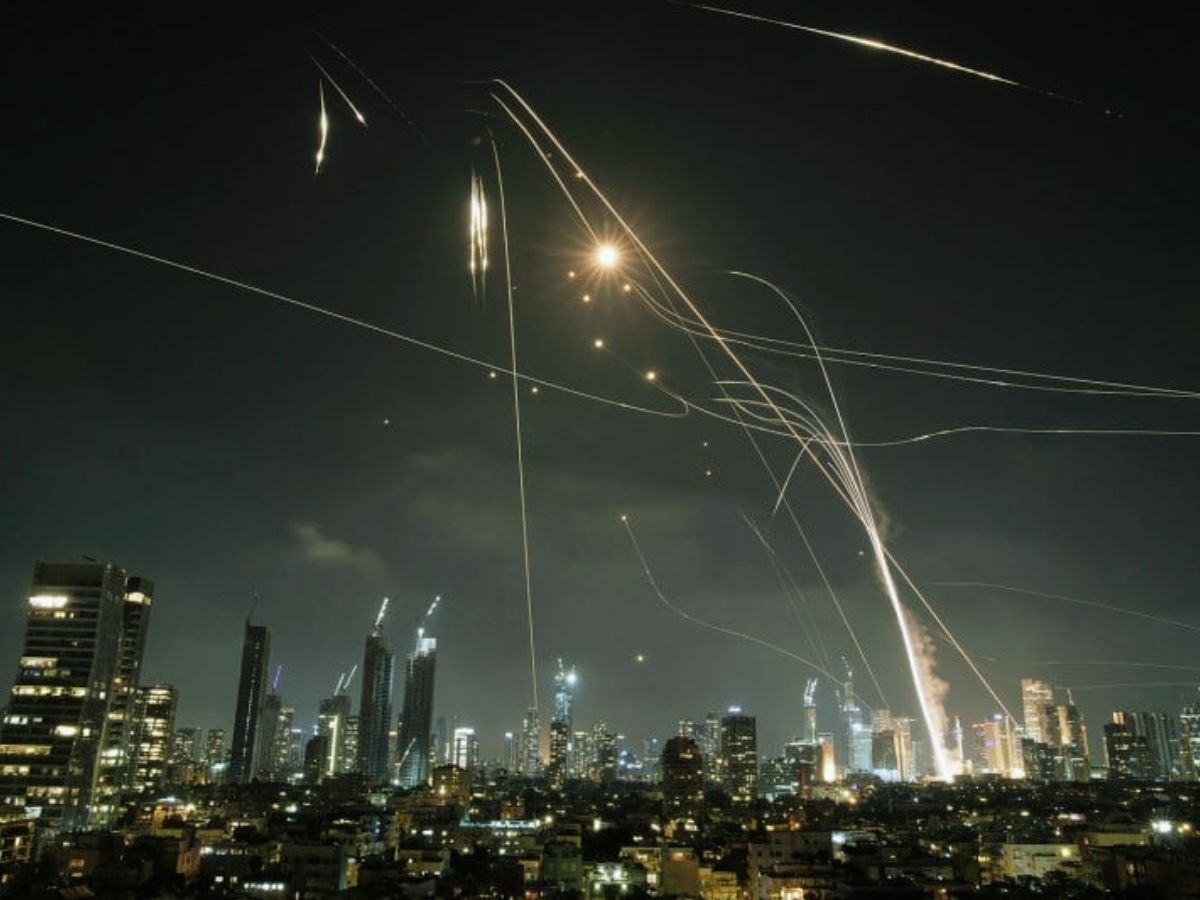In a major development amid rising Middle East tensions, two senior U.S. officials have confirmed that the United States military helped intercept Iranian ballistic missiles aimed at Israel. The officials, speaking on condition of anonymity, did not disclose further operational details, including whether U.S. fighter jets or naval assets were involved in the defensive operation.
The assistance comes in response to a massive Iranian missile assault on Israel, which began late Saturday night. Tehran launched over 150 ballistic missiles, making it one of the most direct and large-scale attacks on Israeli territory by Iran in recent memory. The Israeli Defense Forces (IDF) confirmed the attack and issued a nationwide alert through its official X handle, stating: “All of Israel is under fire as Iran fires projectiles.”
U.S. Support Crucial in Defending Israeli Airspace
The report of U.S. involvement in intercepting incoming missiles underscores the depth of military cooperation between the United States and Israel, particularly in the face of growing regional hostilities. Though the specific platforms used such as Aegis-equipped warships or F-35 fighter jets remain unconfirmed, analysts suggest that U.S. assets stationed in the Mediterranean or Gulf regions likely played a key role.
U.S. and Israeli military coordination has intensified in recent months, especially after Iran increased its hostile rhetoric and cross-border proxy activities. Joint military drills, intelligence sharing, and strategic defense planning have helped bolster Israel’s multi-layered air defense systems, which include the Iron Dome, David’s Sling, and Arrow missile systems all backed in part by American funding and technology.
Netanyahu Issues Strong Message to Iran, Reaches Out to Iranian Citizens
Israeli Prime Minister Benjamin Netanyahu responded to the Iranian aggression with a dual message both defiant and diplomatic. In a video released Friday night, Netanyahu directly addressed the people of Iran, saying: “Our fight is not with you, but with your oppressive regime. Stand up and let your voices be heard.”
The prime minister also issued a stern warning to Tehran’s leadership: “More is on the way. The regime does not know what hit them, or what will hit them. It has never been weaker.”
According to Netanyahu, Israel has already responded by targeting key Iranian military and nuclear assets, including what he described as the country’s most significant enrichment facility, a “large portion” of its ballistic missile arsenal, and senior military commanders and nuclear scientists.
ALSO READ: Benjamin Netanyahu Warns Iran After Massive Missile Attack,Says ‘More Is On The Way’
Iranian Missiles Cause Property Damage in Northern Israel
While Israel’s defenses, supported by U.S. assistance, managed to intercept most of the missiles, at least one munition breached the defense shield and fell in Israel’s Northern District on Friday evening. According to an Israeli police spokesperson, no injuries were reported, but property damage has occurred.
Firefighters in the region responded to multiple fires in open areas, believed to have been caused by debris from intercepted or partially exploded missiles. Local authorities have urged residents to remain alert as recovery and safety operations continue.
Regional Fallout and Global Reactions
The missile exchange has heightened fears of a wider regional conflict, with global powers closely monitoring the situation. The United Nations Security Council is expected to hold an emergency meeting, while the U.S. State Department reiterated Washington’s “ironclad commitment to Israel’s security.”
In a brief statement, the Pentagon emphasized that the U.S. would “continue to assist our allies in defending their sovereignty against threats,” without confirming operational specifics.
Strategic Implications of U.S.-Israel Missile Defense Coordination
Military experts view the latest U.S.-Israel coordination as a powerful signal to Iran and its regional proxies, indicating that any large-scale attack on Israel will be met with a multinational response. The use of advanced interception technologies and real-time joint operations also reflect the evolving nature of modern warfare, where cross-border alliances play a critical role in national defense.
As tensions remain high, analysts warn that continued escalation could draw in other regional actors, including Hezbollah in Lebanon and pro-Iran militias in Iraq and Syria.
The United States’ role in helping Israel intercept Iranian missiles marks a critical moment in the evolving dynamics of Middle East security. With both military precision and political messaging at play, the situation remains fluid and dangerous. As international stakeholders call for de-escalation, the full impact of this confrontation on regional stability is yet to unfold.



